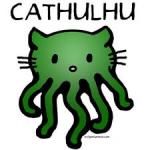 Lollerskatez, on 15 August 2016 - 05:53 PM, said:
Lollerskatez, on 15 August 2016 - 05:53 PM, said:
I've seen this repeated over and over "The timeline doesn't matter," as if it's not integral to understanding the basic plot of the series (it is). I'm not trying to provoke a flame war here, but the whole MBotF + NotME deserve a serious critique for not providing a self-consistent universe.
1. I would accept the argument that the timeline doesn't matter IF the novels weren't written from a third person omniscient perspective. For all its faults, ASoIaF gets away with ambiguous timelines and stories because it's told from each character's point of view. Further, each character is self-consistent. However, the entire Malazan series doesn't have that going for it. We hear different things from the same characters about the same event across the novels, despite no evidence that we should expect them to be unreliable. It's just a complete mess, and events that should have been apparent in some books weren't. Correct me if I'm wrong, but there was no mention of the Jade Comets in Stonewielder, despite that story happening concurrently with Blood and Bone, which also happened concurrently with The Crippled God. Then there's the whole mess of when the 7th Closure is, as well as exactly how old the T'lan Imass are. Or the fact that Dessembrae is mentioned to be present at the Chaining, but he doesn't ascend until much, much later.
That's your first mistake right there. Malazan isn't written from an omniscient perspective. Just because it's in third person doesn't mean that it isn't from the perspectives of the characters in it.
Quote
2. The magic system is an absolute, ambiguous, atrocious mess that makes no sense. The rules are never made clear, their descriptions are convoluted and contradictory, and their "lineage" is in the same boat (or House? or Hold? or... Wagon?). I mean, understanding the magic system is vital to understanding the plot and the timeline, It's heavily suggested that the jade giants have something to do with otataral, but we later find out that there's an Otataral Dragon. Also, it's most likely impossible that the jade giants had anything to do with otataral since, as we find out, the Crippled God (or Kaminsod—no derivation for this name is ever given) isn't bound by the Malazan universe's rules (well, he can be killed, but that's it?). On that point, we find out that the Crippled God was called down from another dimension to destroy Kallor, but how does the magic system allow for interdimensional travel? No other mention of this is given.
Yes, the jade giants have something to do with Otataral and there's an Otataral Dragon. Much of the system of magic and gods and so in Malazan is drawn from animist systems of spiritual belief, in which there is often a spirit for every thing or concept that exists. If a new concept or thing comes about, so too does its spirit. Also why should a derivation for Kaminsod be given? He's an alien god, not from this world. Thus his name wouldn't be linguistically related to any of the names of other deities.
Calling down a god from another world is a singular occurrence because it turned out to be a TERRIBLE idea. And probably before and since most people knew it was a terrible idea, and the only reason it was done was because Kallor was just that awful of a tyrant.
Quote
Some may argue that the poetic, ambiguous nature of the MBotF is because it's "postmodern," but having a barely coherent plot along with an incoherent timeline doesn't make a book series "postmodern." Go read some Coetzee or Danielewski if you want examples of postmodern literature (among others, of course). The lack of a coherent timeline is more evidence of poor plot planning on the authors' part; they had a cool idea for an overarching plot, but they failed to flesh out the details. Honestly, Deadhouse Gates is probably the most accessible and coherent of all the novels, but even that suffers from severe ambiguities that feel more like the author failed to flesh out the details rather than trying to be "postmodern" or "open for interpretation." It's as much a failure on the editors' part as well for not catching these problems early on.
I dunno, I think the plot is pretty coherent.
Quote
In any case, it's our duty as readers to seriously consider a coherent timeline & magic system and note inaccuracies or inconsistencies due to the author's error. There are interpretive methods developed to deal with these problems—it's not new at all. I feel that as the timeline and plot consistency got out of hand, the Erikson decided to get more deliberately hand-wavy in an attempt to salvage the story by implying that it's up to the readers' interpretation. However, I'm not buying it—he messed up hardcore. So, the ultimate onus of constructing the "intended" (i.e., coherent) timelline falls on us to create. by figuring out where he messed up and where he was being deliberately vague.
The only major timeline error I'd attribute to Erikson is Harlo's age.
 Abyss, on 17 August 2016 - 03:25 PM, said:
Abyss, on 17 August 2016 - 03:25 PM, said:
 Help
Help
















